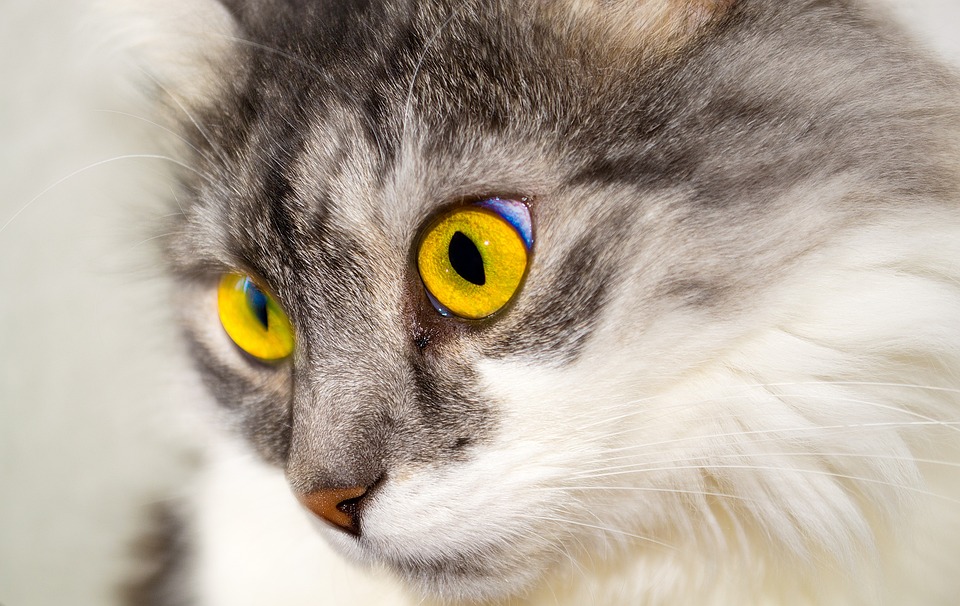Introduction:
Maintaining a cat’s immune system is crucial for their overall health and wellbeing. A balanced diet plays a pivotal role in bolstering a cat’s immune system, preventing diseases, and ensuring a long and healthy life. In this article, we will explore the importance of a balanced diet for cats and delve into how it positively impacts their immune system.
I. Understanding the Cat’s Immune System
A. Components of a cat’s immune system
B. The role of the immune system in keeping cats healthy
The immune system is a complex network of cells, tissues, and organs that work together to defend the body against harmful pathogens, such as bacteria, viruses, and parasites. In cats, the immune system consists of various components, including white blood cells, antibodies, and lymphoid tissues.
The immune system’s primary function is to identify and eliminate foreign invaders, such as viruses and bacteria. It also plays a crucial role in recognizing and destroying abnormal cells, like cancer cells. A healthy immune system is essential for preventing and fighting off diseases in cats.
II. The Importance of a Balanced Diet
A. Essential nutrients for a cat’s immune system
B. The link between proper nutrition and immune function
A balanced diet is essential for providing cats with the necessary nutrients to support a healthy immune system. Key nutrients include protein, vitamins, minerals, and omega-3 fatty acids. These nutrients play vital roles in immune function, cell growth and repair, and overall wellbeing.
Protein is the building block of a strong immune system. It helps produce antibodies, enzymes, and immune signaling molecules. Cats are obligate carnivores, meaning they require a high-protein diet to thrive. Good sources of protein for cats include meat, fish, and poultry.
Vitamins and minerals are also important for immune function. Vitamin C, vitamin E, vitamin A, and zinc are particularly crucial in supporting a cat’s immune system. These nutrients help enhance immune responses and protect cells from damage.
Omega-3 fatty acids, found in fish oil, flaxseed, and certain types of algae, have anti-inflammatory properties and support immune function. These fatty acids help reduce inflammation, which can contribute to chronic diseases and weaken the immune system.
III. Specific Nutrients that Boost the Immune System
A. Protein: The building block of a strong immune system
B. Vitamins and minerals: Enhancing immune response
C. Omega-3 fatty acids: Reducing inflammation and supporting immunity
Protein is essential for the production of antibodies, which are proteins that identify and neutralize harmful substances in the body. Adequate protein intake is crucial for maintaining a strong immune system in cats.
Vitamins and minerals, such as vitamin C, vitamin E, vitamin A, and zinc, play important roles in supporting the immune system. Vitamin C, for example, helps stimulate the production of white blood cells, which are key players in immune response. Vitamin E acts as an antioxidant, protecting cells from damage. Vitamin A is important for maintaining the integrity of the skin and mucous membranes, which act as barriers against pathogens. Zinc is involved in numerous immune processes, including immune cell development and function.
Omega-3 fatty acids have been shown to reduce inflammation and support immune function in cats. These fatty acids can help regulate the immune response and improve the body’s ability to fight off infections and diseases.
IV. The Dangers of a Poor Diet on the Immune System
A. Malnutrition and its impact on immune function
B. Obesity: A weakened immune system’s accomplice
A poor diet can have detrimental effects on a cat’s immune system. Malnutrition, whether it’s due to inadequate nutrient intake or improper balance of nutrients, can weaken the immune system and make cats more susceptible to infections and diseases.
Obesity is another concern when it comes to the immune system. Excess body fat can lead to chronic inflammation, which can impair immune function. Additionally, obesity can put a strain on the body’s systems and make it harder for the immune system to function optimally.
V. Frequently Asked Questions (FAQs)
A. Can I provide my cat with a homemade diet for a strong immune system?
B. How can I ensure my cat gets all the necessary nutrients for a healthy immune system?
C. Are there any specific cat food brands that focus on immune system support?
D. Can overfeeding or underfeeding affect a cat’s immune system?
E. How can I transition my cat to a balanced diet without causing digestive issues?
Conclusion:
A balanced diet is essential for maintaining a robust immune system in cats. By providing the necessary nutrients, such as protein, vitamins, minerals, and omega-3 fatty acids, cat owners can ensure their feline companions have strong immune responses and are better equipped to fight off diseases. Remember, a healthy cat is a happy cat, and a balanced diet plays a vital role in achieving and maintaining their optimal health.
Disclaimer: The information provided in this article is for educational purposes only and should not replace professional veterinary advice. If you have concerns about your cat’s health or diet, consult with a veterinarian.








